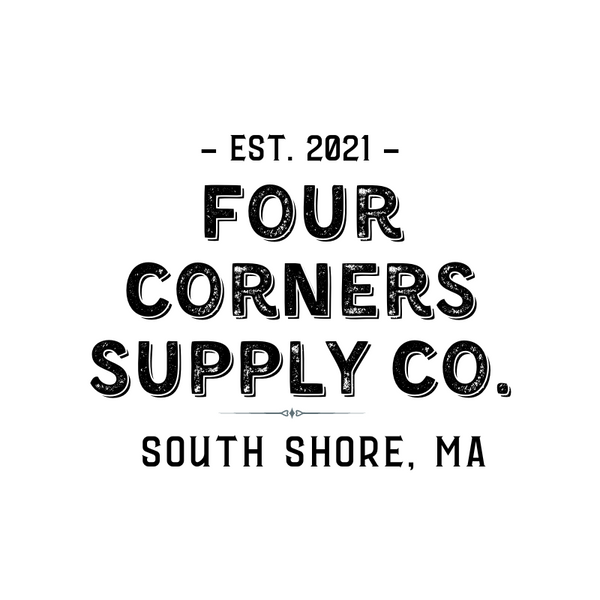Why Choose Ethical Manufacturing? A Consumer's Guide
Share
You can go out and buy anything at the click of a button. But how did it get you? Was it made by someone who made a living wage? Was it made by a consenting adult? Was it made with toxic fumes that both pollute the environment and cause lifelong harm to both the maker and the consumer, as well as bystanders?
If you’ve been around a little while, you know I’m an overthinker….but I also don’t like to frame things as a doomsdayer either.
I like to purchase things that I know are made ethically. Start to finish. (Oh, and in addition to being practical, affordable, and sustainable…folks love shopping with me 😂)
What does that mean?
-
Made by a consenting adult (no child or forced labor)
-
Fairtrade, meaning folks are paid a living wage
-
No animal testing
-
Keeps the environment in mind
-
Values worker safety
-
Gives back to the community
Ethical Labor & Fair Trade
Unfortunately, so much consumed in the United States does not fall under these guidelines. Even things manufactured in this country (I started to get distracted and did a deep dive on this…but I’ll footnote it for those that are eager.)*
Fair wages are also super important. What are the most common household goods that are subject to unethical production? Coffee, cocoa, sugar, palm oil, textiles, shoes, and mining. While it’s nearly impossible to avoid all of this all the time (because sometimes these things can be prohibitively expensive), when we can, we opt to purchase better versions of these things. Brands that are made abroad, like Friendsheep, are Fair Trade certified. They are handmade for fair wages in Nepal and are not mass-produced in China like most of the other wool dryer balls. Their artisans are people—mostly women from underprivileged communities living in the Himalayan Valley of Kathmandu in ethical conditions, and they are part of the Friendsheep family.
No unnecessary animal testing
When it comes to skin care, for example, animal testing isn’t at all necessary, and the vast majority of our products are vegan as well. While some states have laws against this now, many cosmetics are still tested on animals in the United States.
Keeps the environment in mind
Okay, it’s not just that we are not selling products made of plastic, but we are looking for companies who actually walk the walk. You can walk down an aisle at home goods and find some “eco-friendly” bamboo products wrapped in plastic and greenwashing everywhere you look. The companies we source from implement sustainable practices throughout their operations to reduce waste and conserve resources. Take COSH for instance; in addition to sourcing high-quality ingredients, they offer package-free options, options in bulk, and work hard to ensure even their labeling is compostable. We know that our brands are always thinking about how to do better.
Worker safety
It kind of goes without explaining, but it's important that companies prioritize their workers’ safety. Unfortunately that is not the default. Workers in the United States and across the globe are often in terrible working conditions, lack PPE, are subject to toxins, and are forced to work long hours.
Give Back
All of our vendors give back, whether it’s being a 1% for the Planet member (Once again Home, Zefiro, New York Puzzle Company), being a Surfrider partner (Dip, Stasher), or taking part in local initiatives. We also give back during our Quarterly 10% days. We are all about people over profit. (Of course all our wonderful small (and medium) businesses should make money, but insane corporate profits shouldn’t be at the expense of other things). A positive community impact is at the heart of our values.
So while you are gifting this season (or anytime!) we hope you will consider shopping ethically when you can.
--------
footnote:
* Child labor—Sorry, ya’ll, minors can’t consent. Here in the US we have child labor laws…well, kind of. We have laws against “oppressive child labor.” (It’s actually increasing in the United States.) But other countries either don’t have them, or they aren’t enforced. Good news? Child labor has dramatically decreased. Bad news, you still have KIDS working dangerous jobs and not receiving an education.
It's the oppressive child labor that gets me (because yes, I think teens should have jobs in some way, shape, or form), but the recent exposes of meatpacking plants last year show that child labor, while down internationally, has increased nationally. See: kid on an assembly line 60 hours a week or New Yorker Article
Please enjoy this list of the ‘worst offenders.’ It’s a lot. I feel like in the 90s (just me?), China always got the worst rap…well it's not just China, AND not all Chinese goods = bad.
